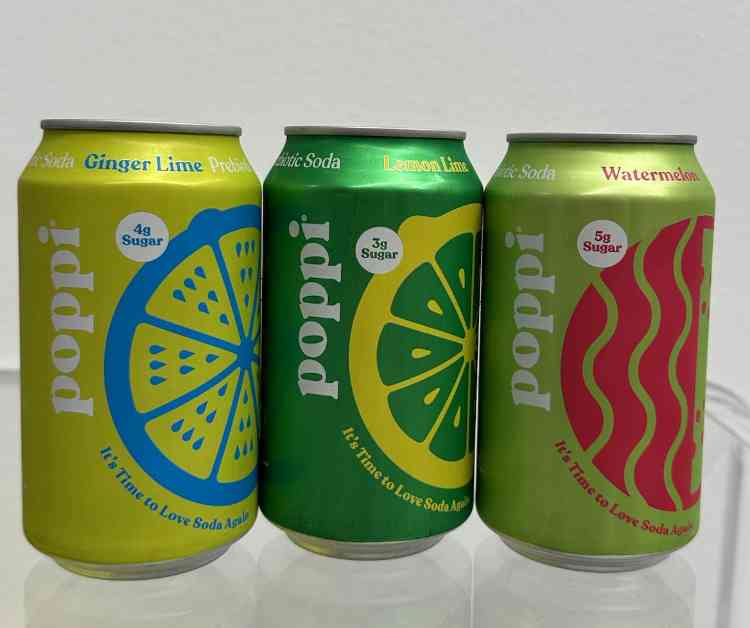PepsiCo’s acquisition of Poppi for nearly $2 billion has sparked a $5 million lawsuit over false advertising claims, raising questions about the brand’s integrity and the products’ health benefits. The deal, while marking a significant milestone in PepsiCo’s journey towards health-conscious offerings, has also brought forth challenges that the company must navigate.
The Rise of Poppi and Its Growing Popularity
Poppi, formerly known as Mother Beverage, gained recognition after appearing on Shark Tank in 2018, where founders Allison and Stephen Ellsworth secured a $400,000 investment. The brand’s claim to fame lies in its prebiotic sodas, touted for their gut health benefits. With ingredients like inulin derived from agave and apple cider vinegar, Poppi quickly carved out a niche in the functional beverage market, becoming a top seller on Amazon.
The False Advertising Lawsuit and Consumer Backlash
Amidst its success, Poppi faced a lawsuit from a disgruntled customer, Kristin Cobbs, who alleged that the brand engaged in false advertising practices. The lawsuit highlighted slogans like ‘Be Gut Happy’ and ‘For a Healthy Gut,’ claiming that Poppi’s sodas did not contain enough inulin to deliver the promised health benefits. Scientific experts echoed these concerns, stating that the quantity of inulin in each can was insufficient to have a meaningful impact on gut health.
Caitlin Dow, a senior nutrition scientist, emphasized that while prebiotic sodas like Poppi might offer a healthier alternative to regular soda, they fall short in delivering substantial gut health benefits. The lawsuit demanded a compensation of over $5 million for the lead plaintiff and other affected consumers, underscoring the need for transparency and accuracy in health claims made by food and beverage brands.
A New Settlement and the Path Forward for PepsiCo
As the legal battle unfolded, recent reports indicated that Poppi reached a settlement of $8.9 million to resolve the false advertising claims, pending court approval. This settlement aims to compensate consumers who felt misled by the brand’s health promises, signaling a potential shift in the way food and beverage companies approach marketing and product claims.
With the acquisition of Poppi on the horizon, PepsiCo must now focus on rebuilding consumer trust and refining its marketing strategies to align with evolving consumer expectations. CEO Ramon Laguarta expressed optimism about the future collaboration, highlighting the brand’s potential for growth and innovation in the years to come. As consumers increasingly scrutinize health claims made by brands, the partnership between Poppi and PepsiCo serves as a reminder of the importance of transparency and accountability in the food and beverage industry.
In conclusion, the legal saga surrounding Poppi’s false advertising claims underscores the complexities of marketing health-focused products in a competitive landscape. While the settlement provides a resolution to the immediate challenges faced by the brand, it also serves as a valuable lesson for companies looking to promote wellness through their offerings. As the functional beverage market continues to expand, brands must prioritize accuracy, integrity, and consumer trust to thrive in an increasingly discerning marketplace.













